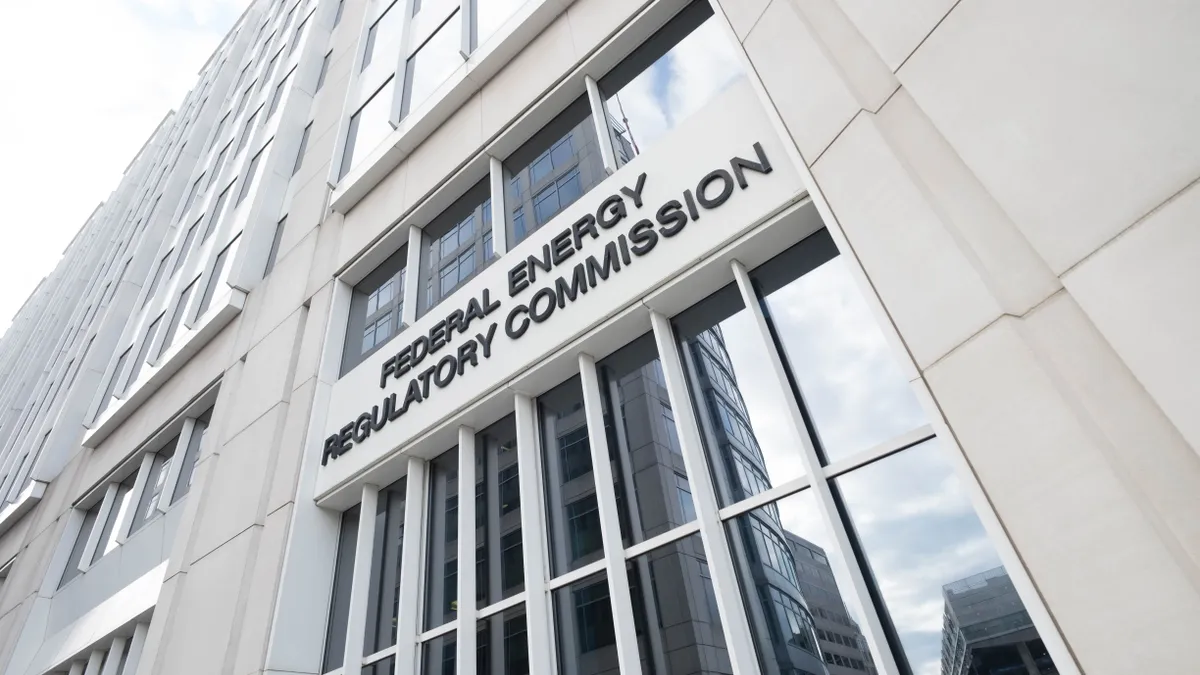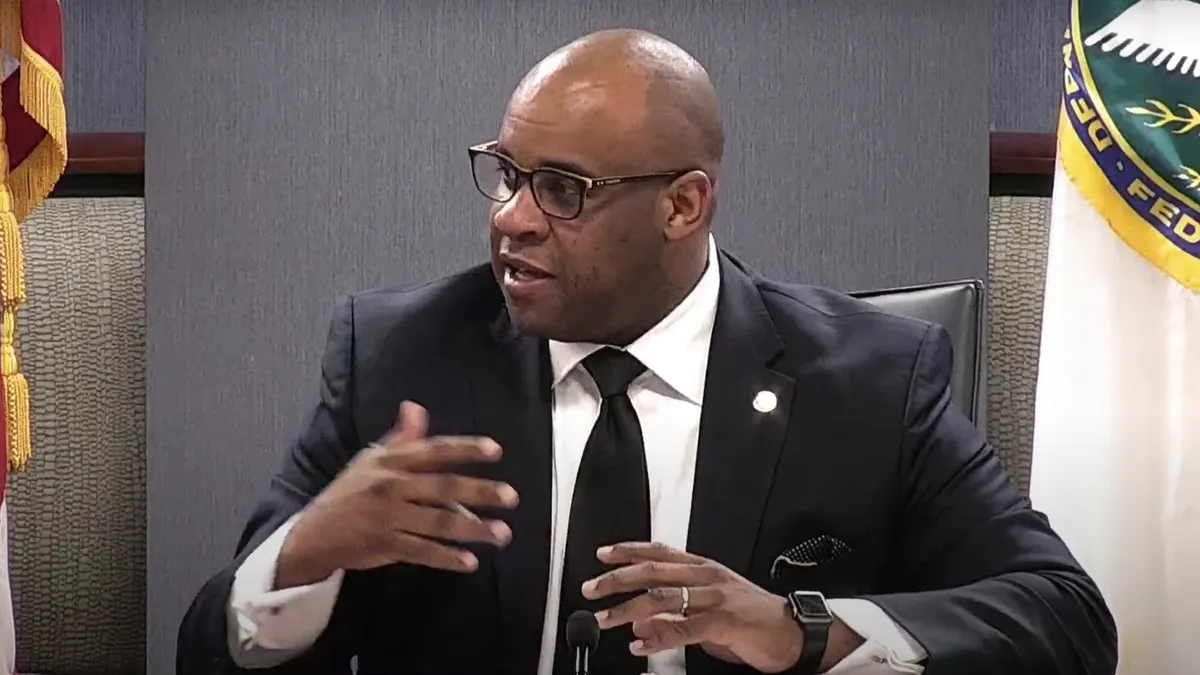The following is a contributed article by Kevin Sunday, director of government affairs for the Pennsylvania Chamber of Business and Industry.
President Joe Biden has announced his intention to nominate Commissioner Willie L. Phillips, Jr. of the DC Public Service Commission to FERC. Should the Senate consent to his well-deserved nomination as the fifth commissioner of the agency, Commissioner Phillips should have one overarching goal: Make FERC boring again.
Over the past few years, FERC has gone from an agency that sought to engage in thoughtful decisions about power markets and infrastructure siting to one whose very actions have been as big of a disruptor as any to the nation's energy system.
In the mid-Atlantic region, PJM's electricity markets have been repeatedly delayed and distorted as FERC has tried, in very short order, to impose vastly different visions on how to account for state policies in the capacity markets. This has had the unintended consequence of delaying distribution utilities' ability to procure power for default service to non-shopping customers. It has also thrown a massive wrench into competitive generators' and retail power providers' ability to engage in long-term planning.
Reliability ought to come first above all considerations. Instead, the grid operator and its host of stakeholders — power producers, utilities, ratepayers, and public service commissions alike — have had their focus continually diverted to rearranging the operations of the country's largest organized grid to meet the ever-changing whims of FERC.
Commissioner Phillips ought to strive to moderate the vision of the agency, away from being a source of exogenous risk to the affordable and efficient dispatch of natural gas and electricity in this country, and towards a source of stability, by working towards a reliable energy system within the statutes and policies written by Congress.
Climate activists might want a fifth commissioner to "transform" the agency; ratepayers would be better suited by a commissioner who takes to heart the memorable phrasing of FERC Chairman Rob Powelson, who noted he didn't "sign up for this job to blow up competitive markets." As someone with a background serving on a public commission, Commissioner Phillips surely recognizes the worth and merit in making decisions within operative frameworks as instituted by legislative bodies.
Make no mistake — climate change has and will continue to challenge and stress our energy system. The EIA has noted an increase in both the number and duration of outages and interruptions in recent years. But it's important to keep in mind that here in Pennsylvania, where we are the biggest net exporter of electricity in the nation and second biggest producer of it, it isn't climate change that is causing this increase in outages outages: it's trees, per the Pennsylvania Public Utility Commission's most recent Electric Service Reliability Report.
This is the case for many other states as well. Yet utilities will be impeded in their ability to manage vegetation if policymakers at 888 First Street NE impose costly mandates on them that instead divert capital and manhours to institute a sweeping overhaul of the electric transmission system to accommodate a "Grid of the Future," as FERC's website currently reads.
Rather than engaging with their shareholders and state regulators to procure a reasonable mix of energy sources, Chairman Glick appears eager to direct utilities and regional transmission operators' to pay for very expensive, interstate transmission projects to deliver wind and solar from faraway jurisdictions — even if ratepayers in a state along the route of the transmission project see neither the economic benefit of the generation nor get to actually use any of the power.
Some states, such as Pennsylvania, have made the policy decision to pool with neighboring states to make transmission planning and power market decisions through PJM. Is it truly just and reasonable for the ratepayers' within PJM to be forced pay for transmission to bring in renewable generation from outside the RTO's borders?
Moreover, for better or worse, Congress has not amended the Federal Power Act to direct FERC to take such sweeping action. Congress has, however, in recent transportation, infrastructure and energy bills, set policy so as to effectuate more timely build-out of infrastructure, including through streamlined reviews under the National Environmental Policy Act.
FERC very well may be independent of the executive branch, but it is still a creature of statute and should respect the directives of the legislative branch. Unfortunately, FERC's current docket relating to natural gas certifications threatens to pour cold water on a key component of our infrastructure system, which is the continued build-out and modernization of the nation's network of pipelines – infrastructure that is very much needed to meet energy needs and address climate change.
As researchers at Columbia University have noted, "investing more in the domestic natural gas pipeline network could help the U.S. reach net-zero emission goals more quickly and cheaply. Fortifying and upgrading the system could prepare the existing infrastructure to transport zero-carbon fuels as they become available."
Finally, Commissioner Phillips has demonstrated leadership in making advances with respect to equity and environmental justice in the challenging context of public utility regulation. This is no small feat, given that energy policies that don't appropriately manage costs and ratepayer impacts will have a disproportionate burden on the segments of the population who struggle most with utility costs.
To wit, California's energy policies have had a severely negative impact on affordable housing and manufacturing in the state, producing burdens which have disproportionately impacted Black and Latino households. At the end of the day, imposing higher energy costs on such households through poorly thought-out policy is itself a disserve and injustice to these communities.
The more FERC presses against or exceeds the bounds of the statutes Congress has written, the more the agency will see its decisions litigated, costing unnecessary time and money when we cannot afford to waste either – not when our energy and infrastructure systems are deeply in need of modernization.
Ultimately, the direction of FERC will be decided by the United States Senate through the confirmation process. As Senators deliberate and debate on the well-deserved nomination of Commissioner Phillips, they would do well to take the time to encourage him to discharge the duties of his office in a manner that hews closely to existing statute and precedent and produces timely permitting decisions, instead of attempting wholesale change to the nation's energy system absent further legislation from Congress. In short, we would all be well-served with Commissioner Phillip working to make FERC boring again.






















